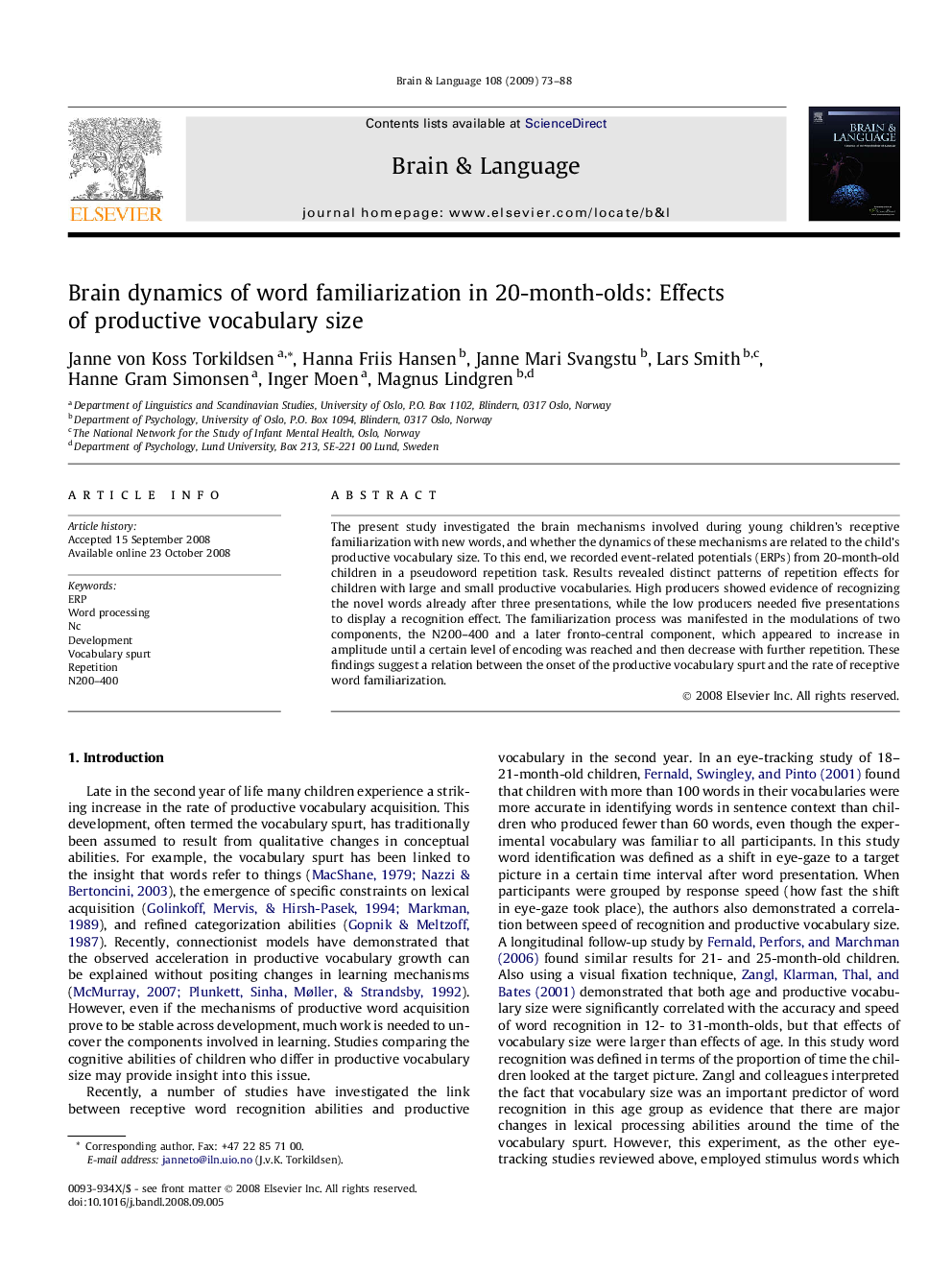| Article ID | Journal | Published Year | Pages | File Type |
|---|---|---|---|---|
| 10456534 | Brain and Language | 2009 | 16 Pages |
Abstract
The present study investigated the brain mechanisms involved during young children's receptive familiarization with new words, and whether the dynamics of these mechanisms are related to the child's productive vocabulary size. To this end, we recorded event-related potentials (ERPs) from 20-month-old children in a pseudoword repetition task. Results revealed distinct patterns of repetition effects for children with large and small productive vocabularies. High producers showed evidence of recognizing the novel words already after three presentations, while the low producers needed five presentations to display a recognition effect. The familiarization process was manifested in the modulations of two components, the N200-400 and a later fronto-central component, which appeared to increase in amplitude until a certain level of encoding was reached and then decrease with further repetition. These findings suggest a relation between the onset of the productive vocabulary spurt and the rate of receptive word familiarization.
Related Topics
Life Sciences
Neuroscience
Biological Psychiatry
Authors
Janne von Koss Torkildsen, Hanna Friis Hansen, Janne Mari Svangstu, Lars Smith, Hanne Gram Simonsen, Inger Moen, Magnus Lindgren,
